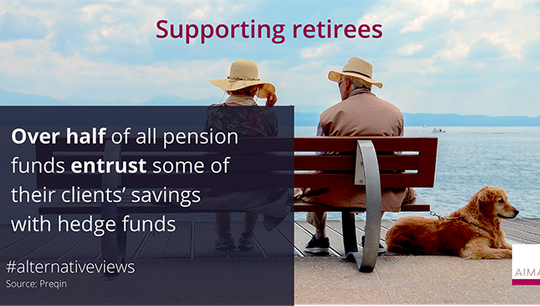How the alternatives industry benefits all of society
Published: 03 January 2017

Until about the mid-2000s, hedge funds and other alternative investment funds were almost solely for the very wealthy. But today, far more capital is invested in such funds on behalf of school teachers, nurses, doctors, private sector workers, university students and the poorest and most disadvantaged in society, than high net-worth individuals.
That is because roughly three in every four dollars invested is done so by institutional investors such as public sector and corporate pension funds, endowment funds, charities and sovereign wealth funds. Only about one in four dollars is invested by the wealthy (high net-worth individuals) – and this proportion is falling all the time.
The changed investor demographic — from private individuals to a predominantly institutional base — has had far-reaching implications for the industry. Institutional investors are guardians of investments on behalf of the general public. They are serious in terms of due diligence and demand appropriate risk management, governance and regulatory compliance from the investment managers and funds to whom they allocate. Institutional investors demand transparency, both during the initial due diligence process and an on-going basis as an investor in the fund. Asset management firms have had to invest significantly in systems, technology and people as a result. Increased regulation has also had a significant impact.
Importantly, alternative asset managers also invest their own capital in their funds. Such co-investment, often called "skin in the game", is much higher in alternatives than in other investments such as mutual funds or tracker funds. It helps with risk management and aligns interests between fund managers and investors.
Further reading










